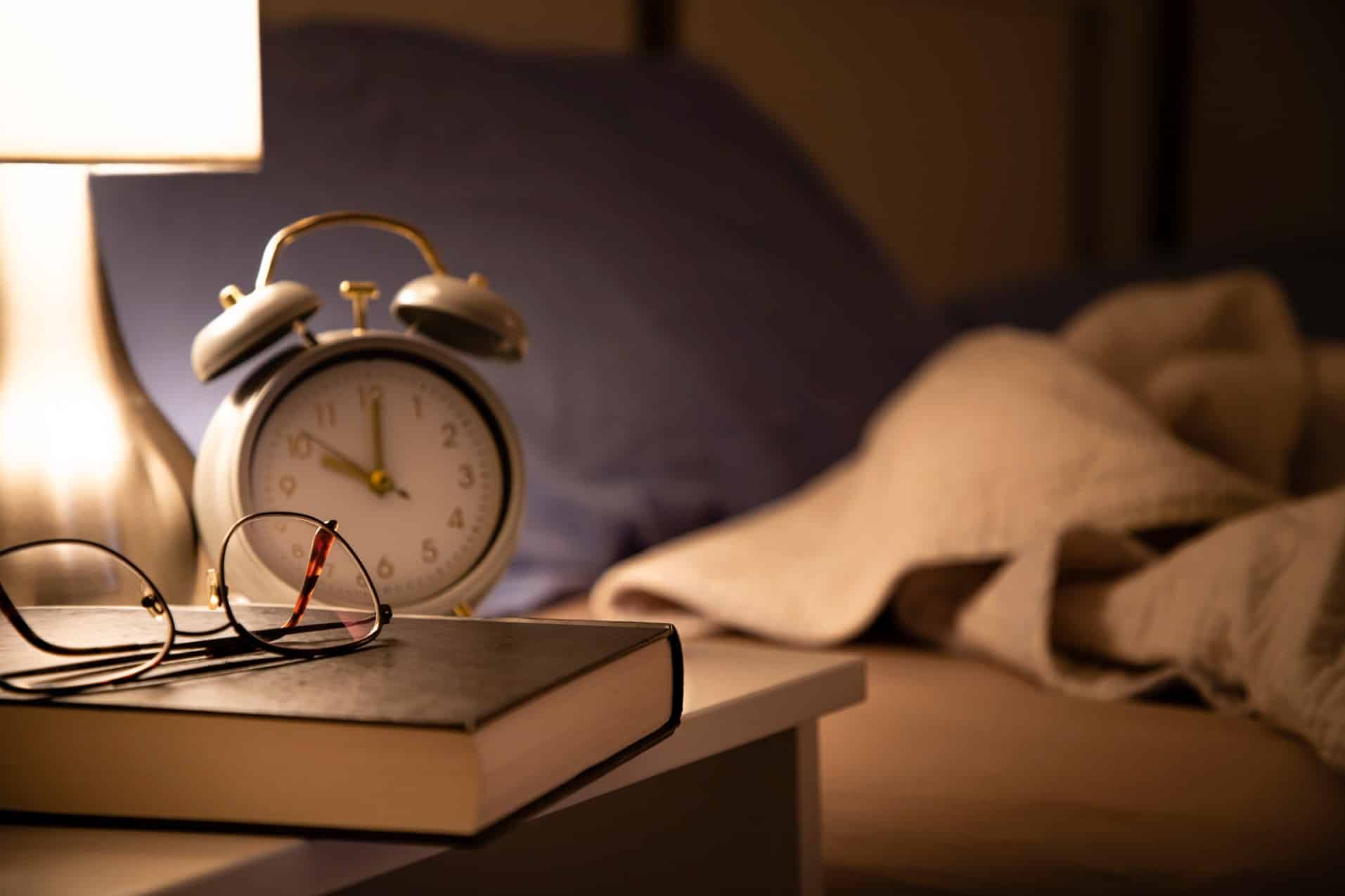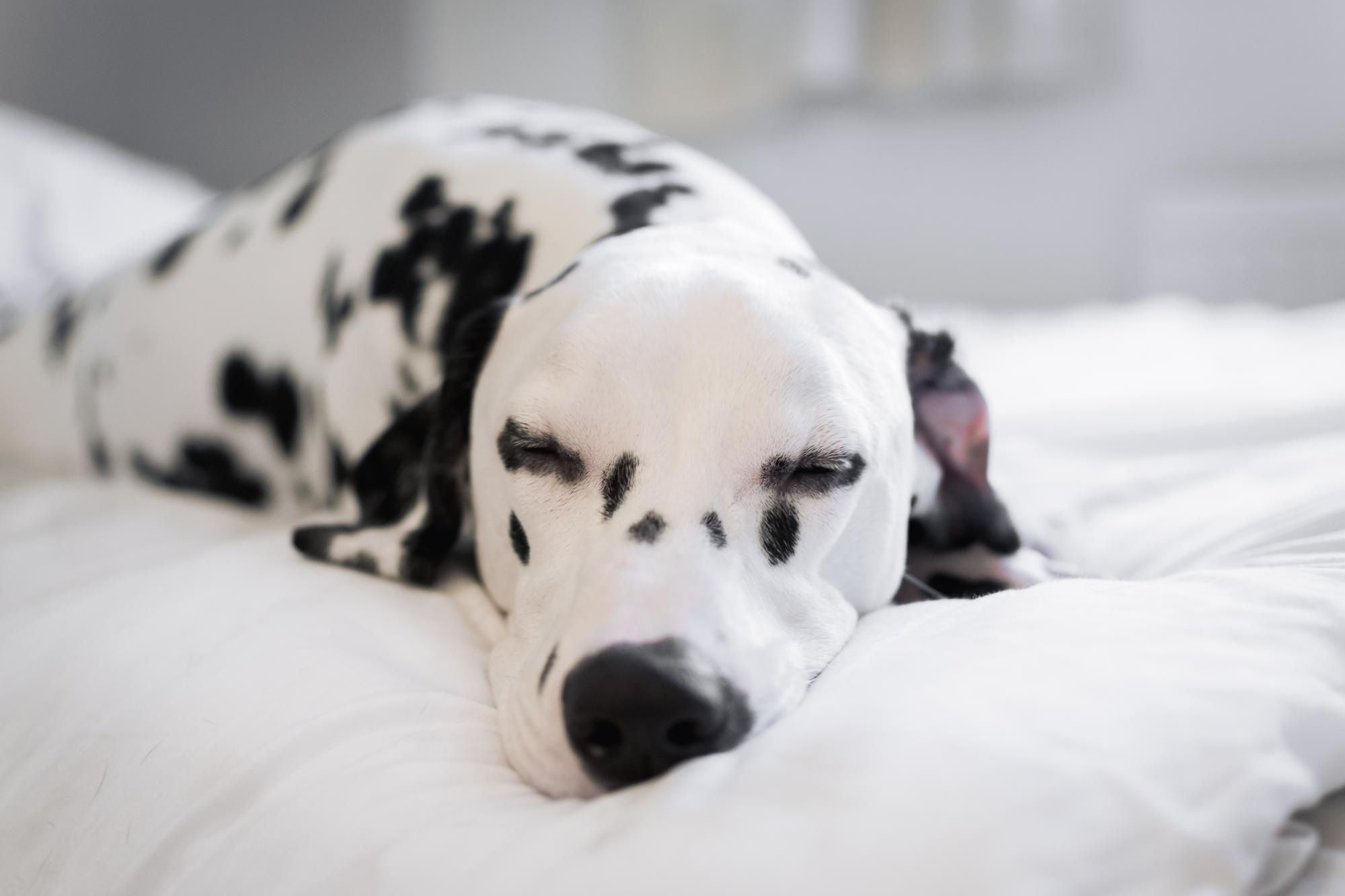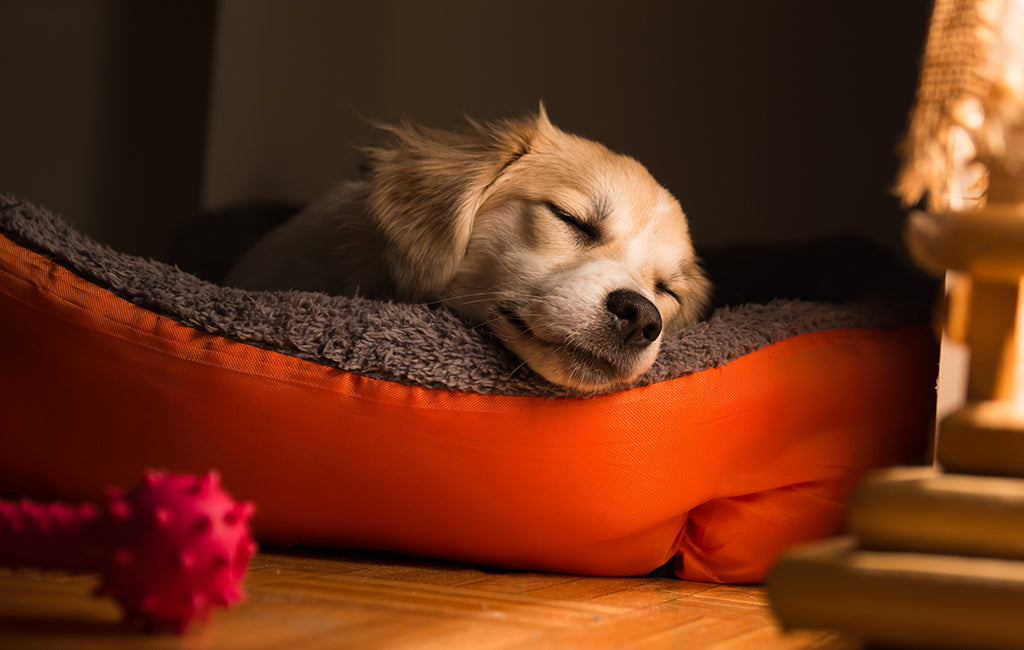Does your dog pace restlessly at night, making it hard for both of you to get a good sleep? You’re not alone, and the good news is, you can help your furry friend find calm and comfort before bedtime.
Creating a peaceful bedtime routine tailored to your dog’s needs can ease their anxiety and stop that endless pacing. You’ll discover simple, effective steps to build a calm bedtime routine that works. Keep reading, because a restful night for your dog—and for you—is closer than you think.

Credit: www.helpguide.org
Reasons Dogs Pace At Night
Dogs pace at nightfor several reasons. Anxiety and stressoften cause restlessness. Changes in routine or loud noises can make dogs feel uneasy. Some dogs pace when they feel lonely or scared.
Health issuesalso lead to pacing. Pain from arthritis or other illnesses can make resting hard. Dogs with digestive problems or needing to go outside may walk around more. Older dogs might pace due to confusion or memory loss.
Environmental factorsaffect pacing too. Too much light or noise in the room can disturb a dog’s sleep. Temperature changes, like being too hot or cold, make dogs uncomfortable. A crowded or messy sleeping area can cause restlessness as well.

Credit: kradlemypet.com
Creating A Relaxing Evening Environment
Choose a soft, warm bedin a quiet corner for your dog. Make sure the spot is free from draftsand distractions. A familiar blanket or toy adds comfort and helps your dog feel safe.
Keep the room dimto signal bedtime. Use soft lightingor a night light to avoid harsh brightness. Try to reduce sounds by closing windows or using a white noise machine to block outside noise.
Calming scents like lavender or chamomilecan help relax your dog. Use a dog-safe diffuseror place a scented cloth near the sleeping area. Avoid strong smells that might upset your dog’s nose.
Establishing A Consistent Routine
Dogs feel calm with regular feedingand exercise times. Set fixed hours for meals and walks. This helps their body clock stay steady. A tired dog is less likely to pace at night.
Before bed, choose quiet activitieslike gentle petting or soft talking. Avoid rough play, which can make dogs more active. A calm mind leads to better rest.
Keep the environment calm and quietbefore sleep. Turn off loud noises and dim the lights. Limit visitors or new people around this time. This helps dogs feel safe and relaxed.
Incorporating Relaxation Techniques
Gentle massagehelps dogs feel calm and safe. Use slow, soft strokes on their back and neck. Touch can lower their stress and stop pacing.
Soothing musicor white noisecan block scary sounds. Play soft tunes or a steady noise to help your dog relax. Keep the volume low and steady.
Interactive toysand puzzleskeep dogs busy and calm. These toys make them think and forget worries. Choose simple puzzles with treats inside to reward your dog.
Addressing Health Concerns
Signs of pain or discomfortin dogs include limping, whining, or restlessness. Watch for changes in eating or sleeping habits. These signs may cause pacing at night.
Consulting a veterinarianis important to find the cause. A vet can check for injuries or illnesses. They can suggest tests or treatments that help your dog feel better.
Medication and supplementsmay help calm your dog. Pain relievers or calming aids can reduce discomfort. Always follow the vet’s advice on dosages and types of medicine.

Credit: zebracbd.com
Training And Behavioral Strategies
Positive reinforcementhelps your dog learn calm behavior. Reward quiet moments with treats or gentle praise. This encourages your dog to repeat good actions.
Desensitization to triggersmeans slowly helping your dog get used to things that cause pacing. Start with small, easy steps. For example, play soft music or dim lights to reduce stress.
Creating safe spacesgives your dog a calm place to rest. Use a cozy bed or crate with favorite toys. A quiet corner helps your dog feel secure and less likely to pace.
Monitoring Progress And Adjusting Routine
Keep a daily logof your dog’s behavior at night. Note how often they pace and for how long. This helps to see if the routine is working. Small changes can make a big difference.
Adjust the routine based on what your dog needs most. Some dogs relax better with a quiet walk, others prefer gentle petting. Be patient and watch closely.
Look for signs of stress that do not improve. If pacing stays the same or gets worse, it is time to ask a vet or trainerfor help. They can offer advice or treatment options.
Frequently Asked Questions
Why Do Dogs Pace At Night Before Sleeping?
Dogs pace at night due to anxiety, stress, or excess energy. It signals restlessness or discomfort. Identifying triggers helps create a calming routine. Proper exercise and a soothing environment reduce pacing and promote better sleep for your dog.
How Can I Calm My Pacing Dog Before Bedtime?
Establish a consistent routine with gentle petting, soft music, and dim lighting. Engage in light exercise earlier to tire your dog. Use calming scents like lavender and provide a comfortable bed. These steps help relax your dog and reduce nighttime pacing.
What Are The Best Calming Activities For Dogs At Night?
Low-impact activities like gentle massages, slow walks, and puzzle toys help calm dogs. Avoid stimulating games close to bedtime. Consistent calming activities signal it’s time to relax. These reduce anxiety and pacing, promoting restful sleep for your dog.
When Should I Consult A Vet About My Dog’s Pacing?
Consult a vet if pacing persists despite calming routines. It may indicate pain, illness, or behavioral issues. A vet can diagnose underlying problems and recommend treatments or behavioral therapy. Early intervention ensures your dog’s health and comfort.
Conclusion
Creating a calm bedtime routine helps your dog feel safe and relaxed. Consistent steps each night make pacing less likely. Quiet activities and gentle touches can ease anxiety. A calm dog sleeps better and wakes happy. Patience matters—change takes time but is worth it.
Small changes bring big comfort to your pet. Keep routines simple and peaceful for best results. Your dog will thank you with restful nights ahead.





